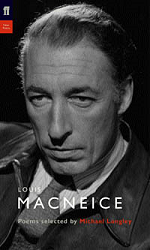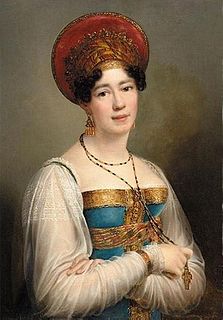A Quote by Ralph Waldo Emerson
Idealism sees the world in God. It beholds the whole circle of persons and things, of actions and events, of country and religion,not as painfully accumulated, atom after atom, act after act, in an aged creeping Past, but as one vast picture, which God paints on the instant eternity, for the contemplation of the soul.
Related Quotes
For those who feel it, nothing makes the soul so religious and pure as the endeavor to create something perfect; for God is perfection, and whoever strives after it, is striving after something divine. True painting is only the image of the perfection of God, a shadow of the pencil with which he paints, a melody, a striving after harmony.
I am not surprised that men who put their trust in an atom should fail in their slightest attempts to plumb truth, that with such limited vision they cannot see beyond the sky and the stars to God Himself; that since they cannot discern the superiority of what is spiritual or the dignity of man's soul, they are even more unaware how hard it is to satisfy, how the whole earth is unworthy of it, how urgently it needs a supremely perfect being, who is God, and how indispensable to it is a religion which will lead it towards God and provide a sure pledge of Him.
In historic events, the so-called great men are labels giving names to events, and like labels they have but the smallest connection with the event itself. Every act of theirs, which appears to them an act of their own will, is in an historical sense involuntary and is related to the whole course of history and predestined from eternity.
The great and secret message of the experiential mystics the world over is that, with the eye of contemplation, Spirit can be seen. With the eye of contemplation, the great Within radiantly unfolds. And in all cases, the eye with which you see God is the same eye with which God sees you: the eye of contemplation.
God is infinite and without end, but the soul's desire is an abyss which cannot be filled except by a Good which is infinite; and the more ardently the soul longeth after God, the more she wills to long after him; for God is a Good without drawback, and a well of living water without bottom, and the soul is made in the image of God, and therefore it is created to know and love God.
Every atom is trying to go and join itself to the next atom. Atoms after atoms combine, making huge balls, the earths, the suns, the moons, the stars, the planets. They in their turn, are trying to rush towards each other, and at last, we know that the whole universe, mental and material, will be fused into one.
The story is told of Lord Kelvin, a famous Scotch physicist of the last century, that after he had given a lecture on atoms and molecules, one of his students came to him with the question, "Professor, what is your idea of the structure of the atom." "What," said Kelvin, "The structure of the atom? Why, don't you know, the very word 'atom' means the thing that can't be cut. How then can it have a structure?" "That," remarked the facetious young man, "shows the disadvantage of knowing Greek."
Given for one instant an intelligence which could comprehend all the forces by which nature is animated and the respective positions of the beings which compose it, if moreover this intelligence were vast enough to submit these data to analysis, it would embrace in the same formula both the movements of the largest bodies in the universe and those of the lightest atom; to it nothing would be uncertain, and the future as the past would be present to its eye.
All the green in the planted world consists of these whole, rounded chloroplasts wending their ways in water. If you analyze a molecule of chlorophyll itself, what you get is one hundred thirty-six atoms of hydrogen, carbon, oxygen, and nitrogen arranged in an exact and complex relationship around a central ring. At the ring's center is a single atom of magnesium. Now: If you remove the atom of magnesium and in its exact place put an atom of iron, you get a molecule of hemoglobin. The iron atom combines with all the other atoms to make red blood, the streaming red dots in the goldfish's tail.
If prayer stands as the place where God and human beings meet, then I must learn about prayer. Most of my struggles in the Christian life circle around the same two themes: why God doesn't act the way we want God to, and why I don't act the way God wants me to. Prayer is the precise point where those themes converge.










































